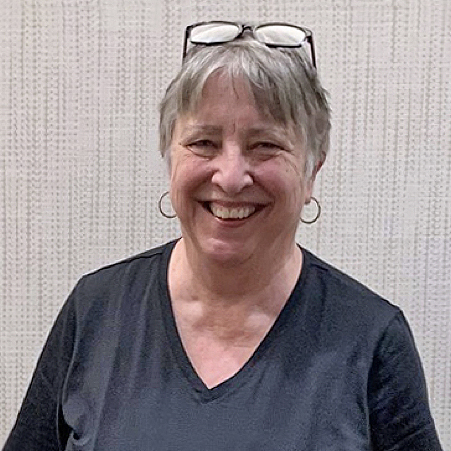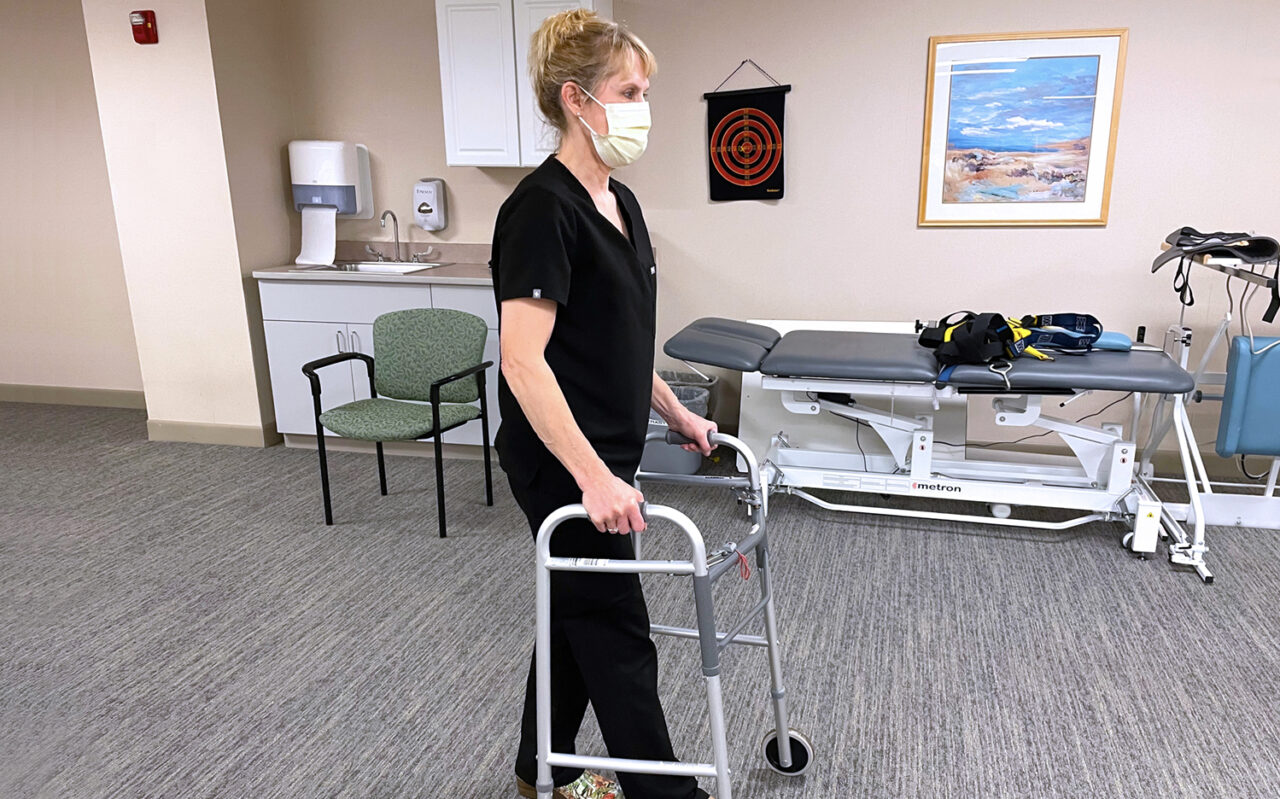Barbara says: Yes it is! Wheeled walkers and grocery carts help improve both lung tidal volume AND youthful appearance!
Many patients are eager to progress from using a wheeled walker to using a straight cane. It’s a sound idea. A cane is less cumbersome and it lets the user have a free hand. But canes can be tricky. For a leg injury or weakness, the cane should be held in the hand opposite the injury and advanced with that foot. (Lots of therapists would cringe watching the TV show ‘House’ where the lead character limped about with a cane in the wrong hand!)
People with pulmonary or cardiac issues might do better, walk further, get more exercise and recover more quickly if they keep using a wheeled walker for an extended time. Keeping hands on the walker with a slight forward lean can place the abdominal muscles on slack, actually promoting deeper breathing. That improved ventilation means better oxygenation. That means improved endurance and function.
Experiment yourself. Next time you’re in the grocery store, feel how comfortable it is to lean a bit on the grocery cart. Your back may feel better, and your pace may be more comfortable even if you do not have mobility problems.
And… for those who don’t want to walk with an assistive device because ‘it makes them look old,’ consider people that you see out in the community. Some obviously struggle with weakness or balance while walking. They can make you nervous! Other people walk in the stores, on the sidewalks, anywhere they want – generally using walkers or “rollators” and they really look like they are enjoying the activity! Now I ask: who looks younger?
(Thanks to Physical Therapist Laurie St. Laurent for demonstrating in the photo!)
 Barbara Kruschwitz, PT, DPT works in the physical therapy department at Whittier Rehabilitation Hospital Bradford. Barbara has almost five decades of experience and loves to help patients recover. She has worked in nationally and internationally-recognized facilities, taught clinically and in universities, worked in home care and ICUs and enjoys one-on-one hands-on clinical work – like our TCU – the best. She says: “Loss of mobility impairs life quality. Knowledge and encouragement can make a huge difference. That is why I come to work – I can help with both.”
Barbara Kruschwitz, PT, DPT works in the physical therapy department at Whittier Rehabilitation Hospital Bradford. Barbara has almost five decades of experience and loves to help patients recover. She has worked in nationally and internationally-recognized facilities, taught clinically and in universities, worked in home care and ICUs and enjoys one-on-one hands-on clinical work – like our TCU – the best. She says: “Loss of mobility impairs life quality. Knowledge and encouragement can make a huge difference. That is why I come to work – I can help with both.”




